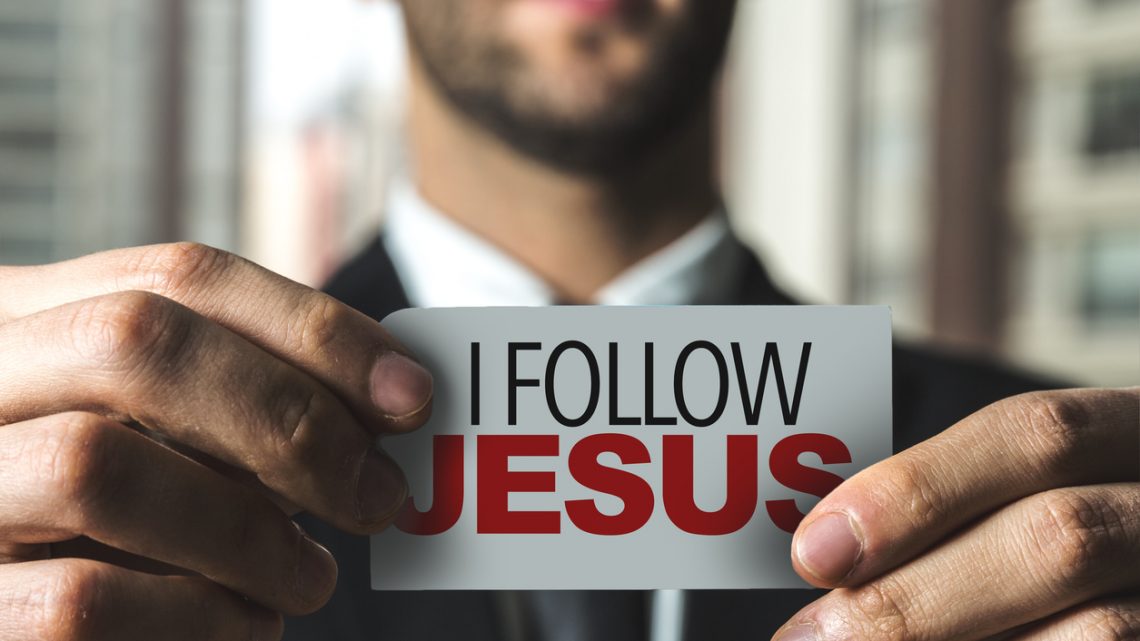Sabbath School Lesson for August 10-16, 2024
Overview for Lesson 7, Teaching Disciples: Part 1
Memory Text: “When He had called the people to Himself, with His disciples also, He said to them, ‘Whoever desires to come after Me, let him deny himself and take up his cross, and follow Me.’ ” Mark 8:34 NKJV
The first half of Mark’s Gospel was centered on showing who Jesus was. But now we find Jesus asking the disciples privately about His identity (Mark 8:27). Once He was convinced that they were beginning to see Him as the Messiah, He felt free to explain what His mission on earth was.
This understanding was hard for them to fathom. He tried to share with them His future suffering and final sacrifice, but it didn’t match the “conquering king” image they had been taught in the synagogue.
Interestingly, the middle section of Mark, chapters eight through ten, begins and ends with miraculous healings of blind men. These events symbolically reveal the lack of spiritual insight that most of Jesus’ followers had. And, regrettably, the misunderstanding of God’s mission continues today.
Here are some of the ways Jesus unfolded His mission to His disciples…
- Sunday: Seeing Clearly–Jesus healing a blind man at Bethsaida, followed by Peter confirming Him as Christ
- Monday: The Cost of Discipleship–Jesus predicting His death and resurrection, reminding them of the high cost of being a disciple
- Tuesday: The Mountain and the Multitude–Jesus being transformed into glory on a mountain, then healing a boy the disciples had failed to heal
- Wednesday: Who Is the Greatest?–Jesus using a child to illustrate the humility they needed to serve Him
- Thursday: The Healthy Man in Hell–Jesus emphasizing the need to eliminate sin from our lives in order to enter His kingdom
Sunday: Seeing Clearly (Mark 8:22-30)
The blind man Jesus healed at Bethsaida was a miracle that is only found in Mark 8:22-26. It is also unique in that it was the only one that required two actions on the part of Jesus. When the blind man didn’t see clearly enough with Jesus’ first touch, Jesus touched him again, and only then was his sight fully restored.
Perhaps Mark wanted us to know that our understanding of Jesus’ mission often requires multiple adjustments, “touches from Jesus”, just as it did for His disciples back then. He doesn’t give up on us easily.
Shortly after this, Jesus inquired privately of His disciples who people thought He was. Several opinions were shared, but when they were asked who they personally thought He was, Peter was the quickest to respond that He was the Christ, a Hebrew translation of the word for Messiah. See Mark 8:27-30.
Just as the blind man who was healed earlier, Jesus instructed His disciples to keep quiet about His identity. Although the meaning of this directive is a bit unclear, people claiming to be the Messiah at that time carried a dangerous political message. Jesus needed more time to fulfill His mission without being accused too early of overthrowing the Roman government.
Bible Verses to Explore:
Mark 8:22-26
- Why do you think Jesus led the blind man out of town before healing him? What benefit might there have been for the blind man to have such personal care and attention from Jesus?
Mark 8:27-30
- What other indications were there of Peter’s ready acceptance of Jesus as his Lord and Savior? Why was he often so outspoken?
- When is it sometimes appropriate for us to be quiet about the things we know about God?
Monday: The Cost of Discipleship (Mark 8:31-38)
Jesus told all the people that there was a cost for following God. But their life of self-denial would be worth it in the end. No one should want the things of this world, if it causes them to lose out on God’s kingdom (Mark 8:34-38). In essence, if they were ashamed of the Son of God on this earth, God the Father would be ashamed of them in heaven.
Hearing these words must have really disturbed the disciples, because Jesus had previously spelled out for them privately what the cost would be for their Master. He told them plainly that He would suffer greatly and even die at the hands of the religious elders. But to instill hope into the situation, He declared that He would be raised from the dead on the third day (Mark 8:31 and Matthew 16:21).
Peter scolded Jesus after making such a prediction. He told the Lord that such terrible things should not happen to Him. But Jesus turned the rebuke against Peter, saying, “Get behind Me, Satan! For you are not mindful of the things of God, but the things of men.” See Mark 8:32-33 and Matthew 16:22-23.
Bible Verses to Explore:
Mark 8:31-33
- Why did Jesus feel a need to share this gloomy prediction with the disciples at this time?
- Why did Jesus say Peter’s rebuke was of the devil? What was wrong with Peter’s thinking?
Mark 8:34-38
- Who are we denying by taking up a cross (verse 34)?
- How can you explain the paradox of losing one’s life, in order to find it? What kind of life is it talking about, and how do we get it?
Tuesday: The Mountain and the Multitude (Mark 9:1-29)
Mark 9:1 has caused Bible scholars to question what Jesus meant by such a statement that some with them that day would see the coming of the kingdom of God. All three of the synoptic gospels contain the episode that is then recorded–the transfiguration of Jesus on the mountain into a glorious, heavenly being. See Mark 9:2-13, Matthew 16:28-17:13, and Luke 9:27.
Matthew indicates that this transfiguration of Jesus occurred just a week after Jesus’ curious prediction about some of them seeing the coming of the Lord. Therefore, it seems logical to think that the Mount of Transfiguration event, that three of the disciples witnessed, included this representation of the Second Coming. Elijah was symbolically the righteous living, and Moses, the righteous dead.
The next miracle Jesus performed was for a demon-possessed boy, who the disciples were not able to heal. It’s interesting to note that the father of the boy asked Jesus for help by saying, “IF You can do anything, have compassion on us and help us” (Mark 9:22). The disciples’ failed effort had no doubt left him with some doubt about the possibility of his boy being healed. Jesus noticed that little word “if” and pointed out that all things were possible to those who believe. The father then asked the Lord to help him with his unbelief (Mark 9:24). After his tearful request, the boy was soon healed.
Bible Verses to Explore:
Mark 9:1-13
- What makes us think that the Mount of Transfiguration experience fulfilled Jesus’ prediction in Mark 9:1?
Mark 9:14-29
- Who besides the father seems to have a lack of belief in this story?
- What are some of the ways can we increase our belief and trust in God?
Wednesday: Who Is the Greatest? (Mark 9:30-41)
Once again in Mark 9:31 Jesus gave a prediction about His future death and resurrection. This time, however, He added another detail. A betrayal was involved. The disciples were understandably perplexed and disturbed about this possibility, but were afraid to ask more about it (Mark 9:32).
Later, when they were in a private home, Jesus casually asked His disciples what they had been discussing among themselves on the road to Capernaum. They were embarrassed to admit that they had been arguing over who would be first in the kingdom of God. Their silence to Jesus’ inquiry showed that their petty, selfish dispute now made them feel ashamed. See Mark 9:33-34.
Jesus didn’t pursue an answer from the disciples, but wisely called a child in the home to His side. After tenderly taking him into His arms to ease the tension, Jesus made some startling statements about the subject of their dispute. He told them that he who would be first in His kingdom must actually be last. In other words, a servant to all, humble and obedient like a child. (Mark 9:35).
The disciples later brought a charge to Jesus that someone who wasn’t in their group of followers had been casting out demons in Jesus’ name. Jesus detected the tone of jealousy in their voices, and once again, tried to draw them away from it. Jesus affirmed the questionable ministry by proclaiming that whoever is not against them should be considered on their side (Mark 9;40). To be sure, there should be no room for jealous pride among God’ faithful.
Bible Verses to Explore:
Mark 9:30-32
- Why did Jesus use that time to mention His betrayal?
- Why was it important that they know about it?
Mark 9:33-41
- What ways did Jesus use to prevent the disciples from feeling jealousy and pride?
- How does jealousy and pride affect the ministry we are all called to do?
Thursday: The Healthy Man in Hell (Mark 9:42-50)
The end of chapter nine includes some exaggerations by Jesus that have mystified some readers. His talk of “cutting off an arm”, “unquenchable fire”, and “being like salt” should not be taken literally.
The little ones Jesus said we are not to offend may not just be children. They could easily be new believers or vulnerable, marginalized groups of people, like the poor, orphans, widows, and foreigners. Also, no one should actually cut off the arm or leg that causes them to sin. And, the unquenchable fires of hell, doesn’t mean they burn forever. It means no one will be able to put them out.
The Sermon on the Mount helps us understand what the “salt” is. We are the salt of the earth, it says in Matthew 5:13. When we become this seasoned salt, Mark 9:50 says we will have peace with one another.
In essence, Jesus wants each of us to be spiritually healthy disciples to avoid the fate of being lost.
Bible Verses to Explore:
Mark 9:42-50
- How do you explain these exaggerated messages of Jesus, and how would you summarize them?
Friday: Final Thoughts
In order to see their mission clearly, Jesus emphasized repeatedly, in different ways, the need to conquer their prideful jealousy of each other. In order for them to work in unity, Jesus knew they had a lot to learn. He continued to touch them in ways that would heal their spiritual blindness, just like He did for the blind man in Bethsaida.
“Before honor is humility. To fill a high place before men, Heaven chooses the worker, who, like John the Baptist, takes a lowly place before God. The most childlike disciple is the most efficient in labor for God. The heavenly intelligences can co-operate with him who is seeking, not to exalt self, but to save souls.” ~ Ellen G. White, The Desire of Ages, p. 436.
Next Week: Teaching Disciples, Part 2
To read the Sabbath School Lesson Quarterly and see more resources for its study, go to









